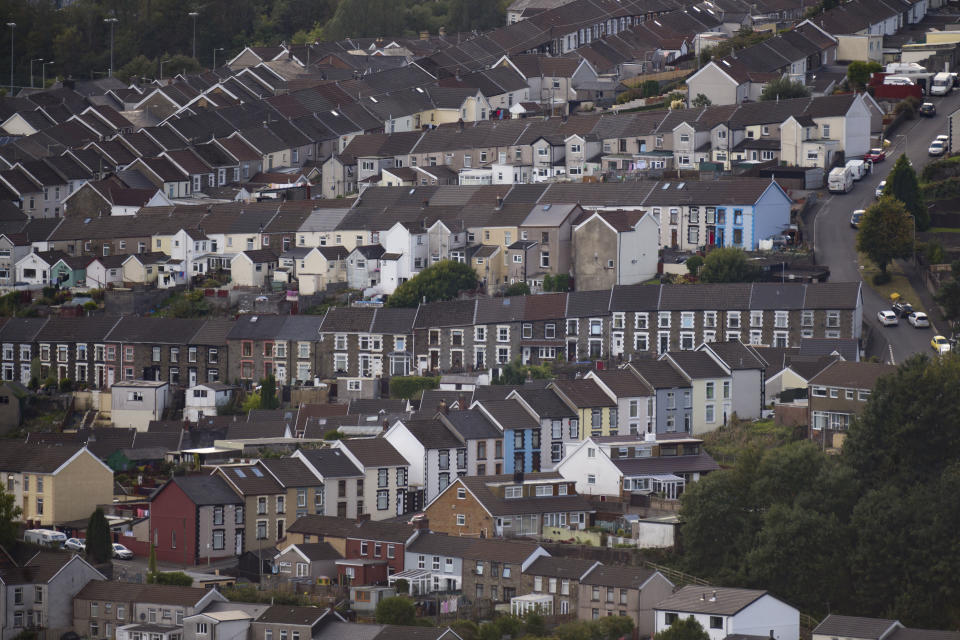UK house prices expected to be higher in a year despite crisis

Most UK estate agents and property surveyors expect house prices to be higher in a year’s time despite the economic crisis, according to a survey.
New figures suggest Britain’s recent housing market boom shows no signs of running out of steam and a continued flight to more rural areas, with growing coronavirus infection rates and lockdown restrictions failing to curb the rush to move.
The number of enquiries by potential buyers, agreed sales and new properties placed on the market all remained “strong” in September, according to a leading industry poll by the Royal Institute of Chartered Surveyors (RICS) on Wednesday.
A significant majority of firms reported property prices were rising, with the number up even further on the previous month’s poll.
Most RICS member firms expected the upturn in sales and prices to continue over the next three months, and a small majority expect prices to be higher even in a year’s time.
READ MORE: UK house prices jump 7.3% as mortgage applications hit 12-year high
Experts attribute the mini-boom in recent months — which has seen some price indicators hit record highs — to stamp duty cuts, low interest rates, pent-up demand after both lockdown and the last election, and new interest in moving since the coronavirus hit.
But the rebound so far has been called a “paradox” by some economists, when the virus and lockdown restrictions are still hammering the economy. Britain suffered the worst quarterly decline in GDP on record earlier this year, and unemployment is expected to keep ticking higher as furlough support is wound down and firms struggle with weak demand.
WATCH: What do stamp duty cuts mean for buyers?
Most RICS members expect sales, if not prices, to be lower in a year’s time. The net balance of member firms who expect sales to be lower in a year — subtracting the number who don’t from the number who do — turned further negative in September, down from -17% in August to -34%.
The outlook for prices in a year’s time is modestly positive, but also varied by region. While estate agents and surveyors in the north-west of England and Wales expect strong growth in the year ahead, those in the north-east, Yorkshire and the Humber, the West Midlands and London expect prices to flatline or decline.
“There is increasing concern that the combination of significant job losses over the coming month allied to the scaling back of policy initiatives in early 2021 will have an adverse impact on transaction levels,” said Simon Rubinsohn, RICS chief economist.
“Meanwhile there is little sense this softer sales picture will be accompanied by very much easing in the momentum around prices and rents adding to the ongoing challenge around affordability.”
Separate figures by lender Halifax on Wednesday also underlined the scale of the boom in UK property. Average prices were up 7.3% on a year earlier last month, with the typical home selling for £249,870 ($322,877).
READ MORE: What ‘Generation Buy’ low-deposit mortgage plans mean for buyers
Meanwhile new analysis by property site Rightmove (RMV.L) on Thursday illustrates a continued rush to move to smaller, more rural areas, with lockdowns and working from home fuelling an apparent exodus from smaller homes in busier urban areas.
Rightmove figures show searches have doubled in small towns and villages, compared to only a 53% rise in the 10 biggest cities.
“Back in May when the market reopened in England we wondered how long the desire to move to the country or to smaller towns and villages would last. It’s clear that this short-term shift has turned into a medium term trend," said Tim Bannister, director of property data at Rightmove.
"Some buyers are now more willing to have a country commute a few times a week, and others are preparing for social distancing to be here for quite some time yet, and so are being drawn to places with more outdoor space," he added.

 Yahoo Finance
Yahoo Finance 